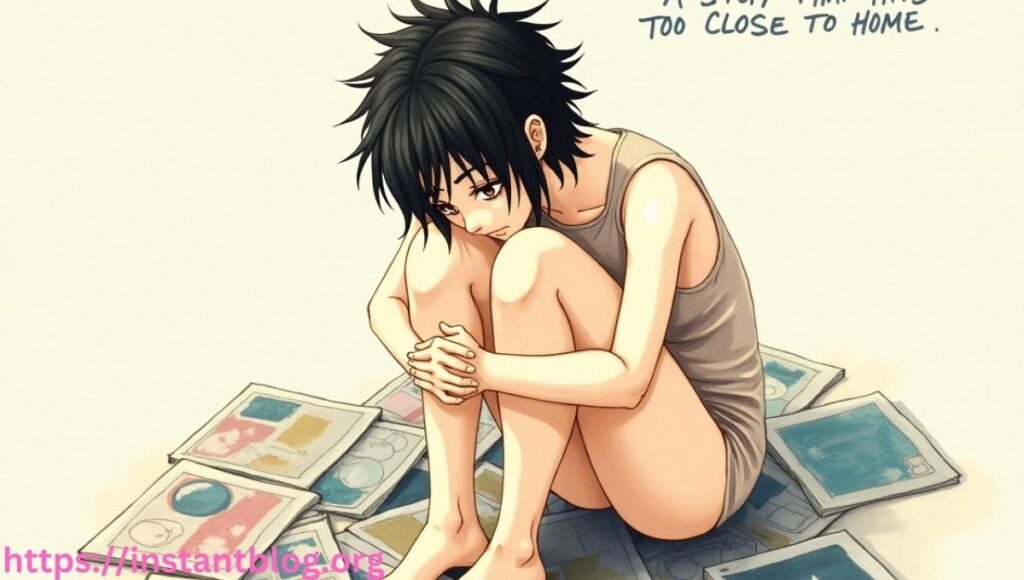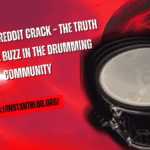What Is Mikoto-chan Doesn’t Want to Be Hated About?
Mikoto-chan Doesn’t Want to Be Hated Manga is a socially charged, painfully relatable tale about a quiet girl who overthinks every interaction and just wants to be liked—or at least not hated. Sounds familiar? Yep, we’ve all been Mikoto at some point.
Who is Mikoto-chan, Really?
She’s not a superhero. She’s not trying to save the world. Mikoto is just a high school girl with one simple goal: not to be hated. But that one goal spirals into mental gymnastics that turn everyday moments into emotional rollercoasters.
She overthinks texts, apologizes when she didn’t do anything wrong, and replays conversations in her head 100 times. Sound familiar? That’s why this manga hits hard for people who suffer from social anxiety, imposter syndrome, or just… being human.
Let’s Talk About That Anxiety Spiral
Imagine walking into a room and instantly wondering, “Did I offend someone? Did they roll their eyes at me? Should I say something or stay quiet?”
That’s the loop Mikoto lives in—every single day.
This manga brilliantly visualizes those spirals of doubt through panel transitions, negative space, and repeated dialogue. MangaDex readers have praised it for using internal monologues more effectively than any modern shoujo in the past decade.
Why Mikoto-chan Doesn’t Want to Be Hated Manga Stands Out in a Crowd
In a genre overflowing with power fantasies and slice-of-life fluff, Mikoto-chan gives us a raw, vulnerable lens into the teenage mind. There’s no romantic lead swooping in to “fix” her. No dramatic makeover. No magical realism.
Just Mikoto. Her thoughts. Her pain. And her baby steps toward self-acceptance.
This stripped-down realism is why Reddit threads are buzzing. One comment summed it up perfectly:
“This manga made me cry because it understood me in ways no person ever did.”
It’s more than a story—it’s a mirror.
Characters Like Mikoto Show the Beauty of Flaws
So let’s get one thing straight: Mikoto isn’t the only relatable character here.
Yuka, the overly cheerful classmate who uses jokes to hide her trauma.
Takumi, the boy who doesn’t understand boundaries until it’s too late.
Sensei, the teacher who means well but misses the deeper issues.
Every character in this manga is beautifully flawed, which makes their growth feel earned. This isn’t your typical good vs. evil narrative—it’s everyone vs. themselves.
This dynamic gives readers and bloggers a lot of material to analyze. If you’re the type to dive into literary symbolism or character arcs, this manga practically begs for deep-dive threads and longform essays.
The Hidden Themes You Might’ve Missed
Beneath the obvious social anxiety theme, the manga touches on:
People-pleasing as a trauma response
Cultural expectations in Japanese schools
Online vs. offline identity (yes, it hints at this subtly!)
Unspoken female rivalry and passive aggression
All of these make it a perfect study for writing bloggers exploring narrative devices in manga. Even the way silence is drawn—long panels with no dialogue—serves as emotional punctuation.
That Plot Twist No One Saw Coming
Somewhere around volume 4, the story pulls off a twist that totally recontextualizes Mikoto’s behavior—and no spoilers, but it’s a plot twist no one saw coming.
This revelation is subtle, emotional, and deeply tragic. It doesn’t shock with gore or betrayal—it quietly shifts your whole understanding of Mikoto’s inner world.
👉 Read more about that plot twist no one saw coming here.
Trust me, after that chapter, you’ll want to reread the entire series from the beginning.
Why Book Lovers & Bloggers Shouldn’t Sleep on This Manga
If you’re a bookworm who enjoys character-driven plots, internal conflict, and themes of alienation, Mikoto-chan is your jam.
For bloggers, especially those who write about:
Mental health in fiction
Writing flawed female leads
Subverting typical manga tropes
…this manga gives you plenty of content to dissect.
You can compare it to novels like Eleanor Oliphant is Completely Fine or even The Bell Jar. It’s that rich.
Suggested External Sources
- Mikoto-chan on MyAnimeList – for ratings and community insights
- Manga Review: Why Mikoto-chan is More Than Just Angst – an in-depth editorial
- Reddit Thread on Character Development – fans discussing character arcs in detail
Final Thoughts on Mikoto-chan Doesn’t Want to Be Hated Manga
In a world that glorifies confidence and charisma, Mikoto-chan Doesn’t Want to Be Hated Manga dares to shine a spotlight on awkwardness, anxiety, and emotional survival.
It’s not loud. It’s not flashy. But it’s deeply, deeply human.
And for that reason alone, it’s one of the most important manga stories you’ll read this year.
Frequently Asked Questions
1. Is Mikoto-chan Doesn’t Want to Be Hated completed?
As of now, the manga is ongoing. New chapters are released monthly and translated within a few days by scan groups like those featured on MangaDex.
2. Where can I read this manga legally?
Currently, it’s not officially licensed in English. However, you can follow scanlations on MangaDex until an official publisher picks it up.
3. Is this manga appropriate for younger readers?
While there’s no explicit content, the emotional themes are quite heavy. It’s best suited for readers 15+ who can appreciate nuanced storytelling.
4. What genre does this manga fall under?
It blends psychological drama, slice-of-life, and a hint of school life realism. Definitely not your average feel-good read, but highly rewarding.
5. Will it get an anime adaptation?
No news yet, but considering its rising popularity and deep themes, it wouldn’t be surprising if a studio picks it up soon.



